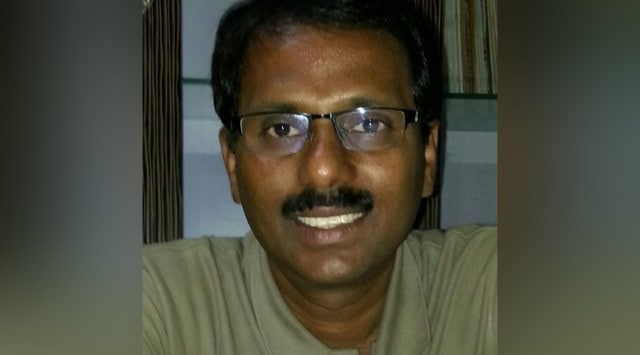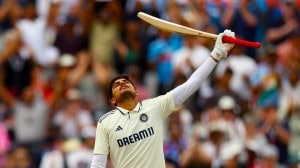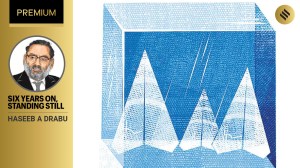Dr Sanjay Dabhade: ‘Won’t accept classification of STs to accommodate Dhangars, as they aren’t tribals’
Dr Sanjay Dabhade, state committee member of National Forum for Tribal Rights spoke to Alok Deshpande on issues ranging from the decision, to Dhangar community’s demand, to the ongoing case in High Court in this regard.
 Dr Sanjay Dabhade, state committee member of National Forum for Tribal Rights. (File)
Dr Sanjay Dabhade, state committee member of National Forum for Tribal Rights. (File) Amid ongoing protests of Tribals across the state against the inclusion of Dhangar community in the Scheduled Tribe (ST) category, Maharashtra government held its 51st meeting of the state advisory council for tribals, and announced a slew of decisions, including formation of state commission for ST. Dr Sanjay Dabhade, state committee member of National Forum for Tribal Rights spoke to Alok Deshpande on issues ranging from the decision, to Dhangar community’s demand, to the ongoing case in High Court in this regard.
Q: What is the reason behind ongoing Tribal versus Dhangar row in Maharashtra?
Constitutionally, every state has its own schedule whereby a list of tribes eligible for reservation is mentioned. We have 45 tribes and on number 36, Oraon, Dhangad is mentioned. What it means is, Oraon is the main tribe and Dhangad is its regional name. Maharashtra’s Dhangars claim that Dhangad is a spelling error, whereby they claim that the entry on number 36 is for them. If we search for the origin, we find that when Nagpur, Chandrapur, Gadchiroli and others were part of Central Province and Berar, the STs from Madhya Pradesh were counted in Maharashtra, leading to the entry of Oraon, Dhangad. After Maharashtra became a state, it remained as some of them were working here. Now, we have Oraon, Dhangads in Bihar and West Bengal only. Maharashtra government has given an affidavit in court mentioning that the state has no Dhangads. In addition, the Supreme Court verdict in a similar case about Manipur states the same, you have to read it as it is. Which means there is no reason to believe it was a spelling error.
Q: What is the process to add a new name in the tribal schedule?
SC has stated that it is not the court’s job to change spellings or to accept any community as tribal. Only the Parliament can do it. Not even state legislation. It has a procedure to it. In the case of Maharashtra, the Tribal Research and Training Institute will study the demand for inclusion, will submit a report to the state government, and the cabinet will decide whether to accept it or not. If accepted, the tribal advisory council will study it, and if they accept it, the state will prepare a proposal to be sent to the Centre. After approval from the National Commission for STs, it will go to the Registrar General of India, and then to the cabinet secretary, and once approved it is converted into a Bill to be presented in Parliament for approval.
Q: Do you oppose inclusion of Dhangars in the ST list?
Absolutely. The entire tribal population opposes it for a simple reason that Dhangars are not tribals. TRTI has repeatedly said that Dhangar is a caste, not a tribe. Nationally they are OBCs while in the state they have a separate 3.5% VJNT-C category within 27% OBC reservation. Anthropologically, ethnically and culturally, the Dhangars do not qualify for the characteristics of being STs. We will not even accept any classification of STs to accommodate Dhangars.
Q: Do you see a political hand in this?
BJP has provoked Dhangars. During the 2014 LS campaign, it was Narendra Modi who promised Dhangars ST status in his rally at Solapur. This is nothing but BJP’s politics of making communities fight each other. Fadnavis as CM had asked TISS for a report on this issue which has yet not been made public, because the report is against Dhangars. The report was prepared through public money and we demand for it to be presented to the court and to the public.
Q: What is the status of the court case?
The Dhangar community went to court in 2017. We are opposing it. Even the court has asked the state government about the TISS report. The regular hearing of this case will be held on December 8, 11 and 15.
Q: What was the need to call a meeting of the council?
The state advisory council for tribals held its 51st meeting last week. Ideally, the council which is a constitutional body should meet twice a year as it impacts the lives of around 9.4% ST population of Maharashtra. But this was the first meeting in four years. The CM heads the committee which has representation from tribal parliamentarians and legislatures as well as two nominations. The CMs of all parties have traditionally neglected these council meetings.
Q: What is your opinion on the state’s decision to form a commission for ST?
The decision to form the commission should be welcomed, it was a long pending demand. The present state commission is of Scheduled Castes and Tribes, which fails to give due representation to STs. The commission only once had an ST chairperson. A state commission may give accessibility and effective redressal mechanism. However, the announcement should not be only on paper as adequate staff and funds must be given at the earliest. As far as possible, the chairperson should be from ST.
Q: What needs to be done for effective utilisation of tribal budget?
As per guidelines, the tribal department’s budget is to be in proportion to the percentage of tribal population. The funds are spent in a rush during the last two months of the fiscal, it also lapses and more importantly instead of direct or targeted benefits to tribals, the expenditure on notional benefits is more. Priority areas such as education and women need to be fixed. The demand for a legislation has been pending for years; it includes mandating allocation of funds as per population proportion, timely disbursement, no diversion and no lapsing of tribal funds, as well as action on officials failing to fulfill conditions. A private member bill has already been admitted by Congress MLA KC Padvi, but he didn’t get support from non-tribal members. Such a law exists in Andhra Pradesh, Telangana and Karnataka.












